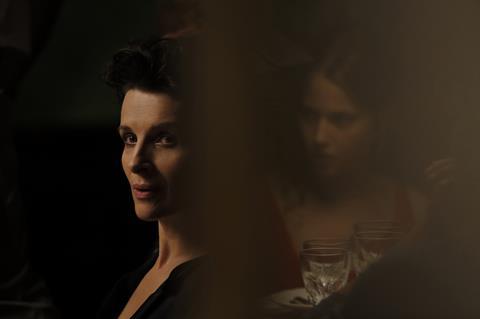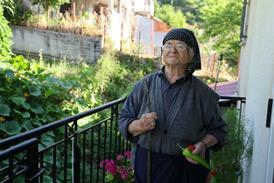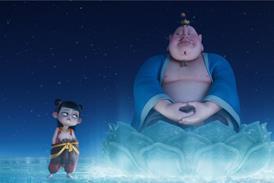Dir: Piero Messina. It-Fr. 2015. 100mins

The beautifully composed imagery of The Wait (L’Attesa) starts in a Catholic church in Sicily with a somber funeral underway. But the 11th Commandment — “Though shalt not lie through one’s teeth” — is foreign to Anna (Juliette Binoche) who has just unexpectedly lost her only son, Giuseppe. Due to a mixture of grief, denial and the proximity of Easter with its promise of resurrection, Anna can’t bring herself to tell Giuseppe’s visiting girlfriend Jeanne (Lou De Laâge ) that her sweetheart is dead. How long can this cruel charade continue, with the younger woman expecting Giuseppe to show up any minute — or at least answer his mobile phone?
The entire film is a game of cat and mouse in the emotional equivalent of slow-motion, made watchable by elegant compositions and De Laâge’s natural beauty
Updating a mid-1920s play by Pirandello, director Piero Messina (making his feature debut) gets considerable mileage from the basic conceit, toying with the pros and cons of illusion versus reality and intimating that love just might be stronger than death. But the at-first genuinely intriguing suspense won’t hold for all viewers. The Wait bowed at Venice 2015 in Competition.
A Frenchwoman who was “the first woman in this part of Sicily to divorce her husband,” Anna lives on a remote estate, looked after by gruff caretaker Pietro (Giorgio Colangeli). Binoche has long specialised in on-screen anguish and here she conveys the many shades of grief with her customary skill, in both Italian and French. She’s sad, bereft, distraught and unhappy, that’s for sure. When Jeanne, whom she’s never met, rings from Paris and asks for Giuseppe, Anna answers that “he’s not here” but invites the caller to come to Sicily. Is Anna out of her mind with grief or just out of her mind?
Road-weary but youthfully radiant Jeanne doesn’t know what to make of the lady of the house’s absence after the long drive from the airport with Pietro. Jeanne dines alone and goes to bed. The next morning it sure seems as if the household is in mourning — the mirrors are draped in black and the whispering guests look drawn and upset. But after the awkward first encounter between Anna and Jeanne, at the juncture where it would make sense for Anna to spill the beans, she fashions another explanation for the downbeat surroundings. There’s still an hour and 15 minutes of increasingly dicey screen time to fill.
The entire film is a game of cat and mouse in the emotional equivalent of slow-motion, made watchable by elegant compositions and De Laâge’s natural beauty.
Viewers are free to interpret the proceedings as a study of how the senses are both heightened and dulled by grief or to see the film as a nasty shaggy-dog story assembled from genuinely lovely visuals. Either way, Messina — who also helped compose and played guitar on the film’s score — is a young talent to watch.
Production companies: Indigo Film, Medusa Film, Barbary Films, Pathé
International sales: Pathé, Themba.BHEBHE@pathe.com
Producers: Nicola Giuliano, Francesca Cima, Carlotta Calori
Screenplay: Giacomo Bendotti, Ilaria Macchia, Andrea Paolo Massara, Piero Messina
Cinematography: Francesco Di Giacomo
Editor: Paola Freddi
Production design: Marco Dentici
Music: Alma Napolitano, Marco Mangani, Dimitri Sillato, Piero Messina
Main cast: Juliette Binoche, Lou De Laâge, Giorgio Colangeli
























